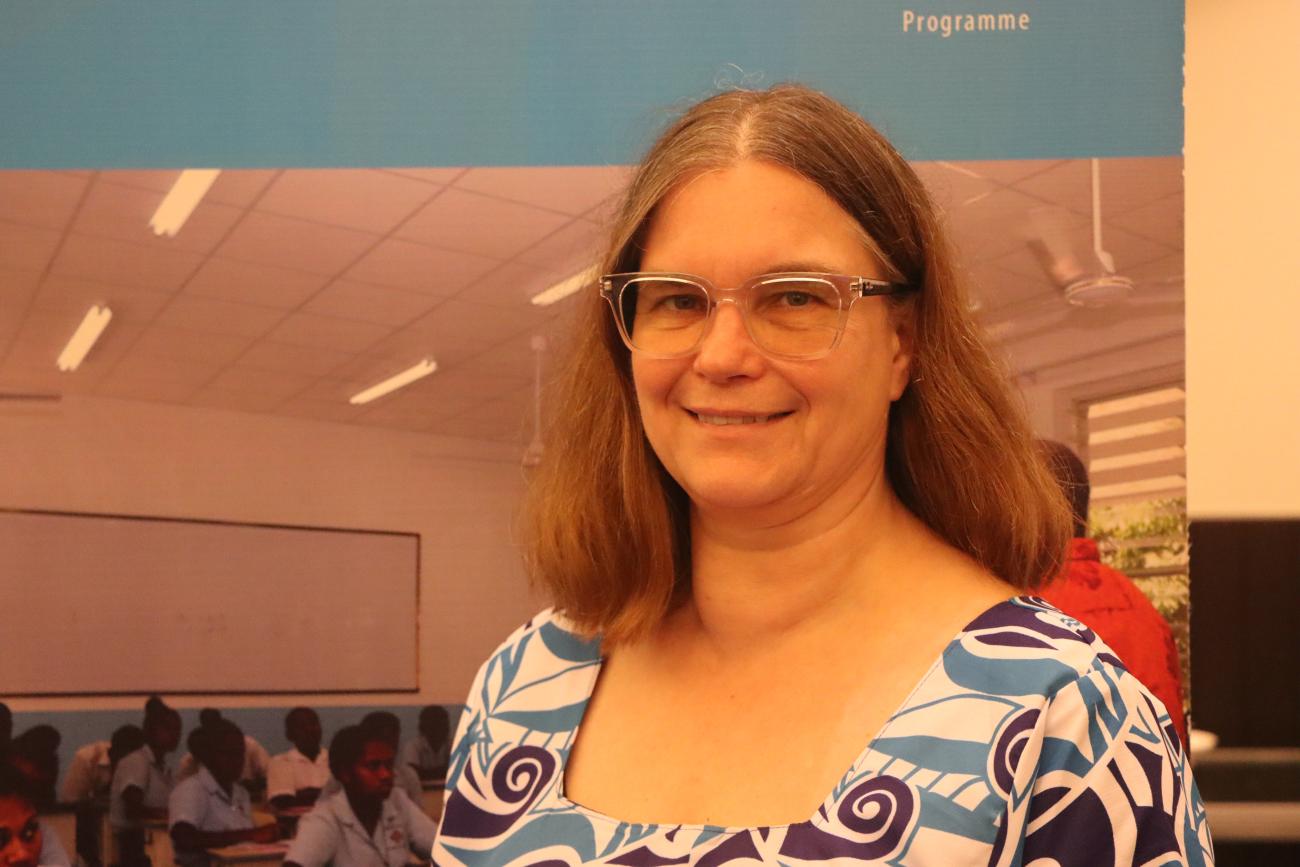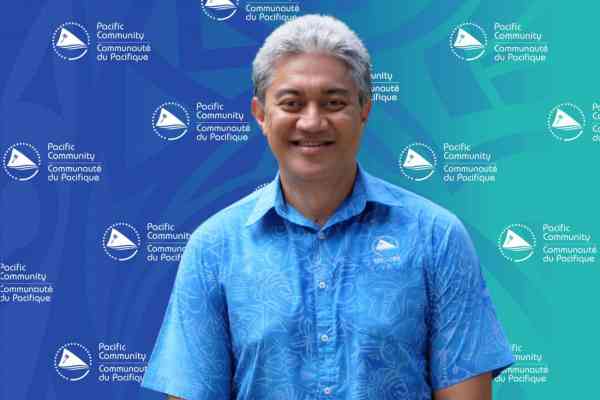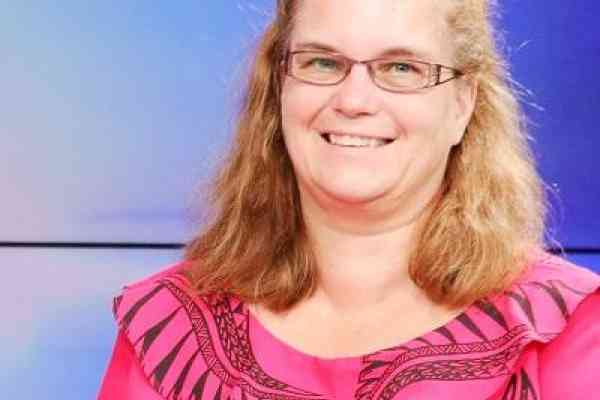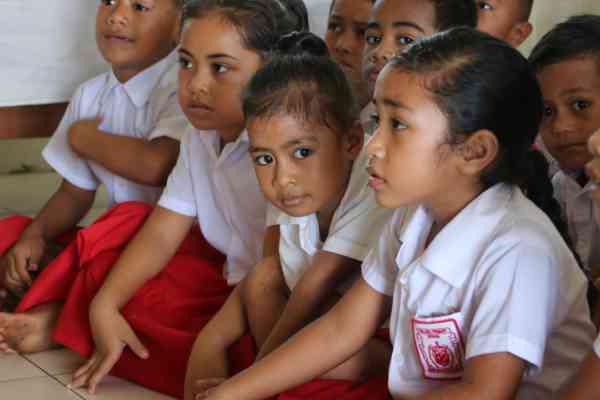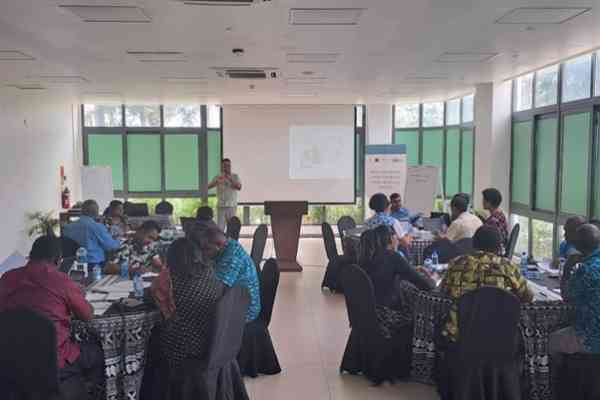
Good morning, everyone and thank you all for your presence here today as members of the Pacific Board for Education Quality, a subcommittee of the Committee of Representatives of Governments and Administrations (CRGA), the governing body of the Pacific Community (SPC). It is my privilege as Director of the Educational Quality and Assessment Programme (EQAP) to provide the Board with a report today of what has transpired within EQAP since we last met in Auckland a year ago.
As you will know from the meeting invitation and meeting papers, this week marks the 9th time the PBEQ has met as a CRGA subcommittee. Since that first meeting in 2016, EQAP has both grown and evolved leading SPC’s efforts to improve the quality of education in Pacific Island countries and territories contributing to the achievement of SPC’s vision, mission and development goals, and PICT’s education goals, and in its role as a regional public good, supporting the quality of regional and national education in the Pacific.
As a division of SPC, EQAP’s work is guided by the SPC Strategic Plan and articulated through the EQAP Business Plan. 2023 was the first year of work under the 2023-2026 Business Plan and we continued to progress towards the four strategic outcomes under that plan. Over the course of 2023, approximately one-third of EQAP’s work and budget went towards Outcome 1, Ministries and other key institutions increase the use of information for policy development, implementation, planning and management. The activities undertaken under this outcome relate to PILNA, PALS, Data Quality, Education Statistics, the Educational Research Network and PacSIMS.
Roughly 20% of the division’s work in 2023 fell under Outcome 2, Inclusive and accessible performance assessments of Pacific learners occur frequently, reliably and against curricula. The focus of the activities under outcome 2 include curriculum review, assessment support and classroom-based assessment as well as training and support to ministries including PacSIMS training.
Outcome 3, that Quality assured qualifications are taken up by employers and learners, accounted for approximately 15% of EQAP’s work in 2023, inclusive of support, training and advice to NQAAs and to ministries of education establishing NQAAs, initial work in implementing the Pacific Qualifications Recognition project and work on the regional form seven certificate.
The remaining third of our work in 2023 fell under Outcome 4, that EQAP is increasingly recognised internationally as a leader and source of knowledge and expertise in education in the Pacific. Under this outcome the EQAP team worked to provide technical advice to other SPC divisions, to enhance the capabilities of the EQAP team in support of member priorities, to collaborate with education stakeholders including member countries, development partners and regional education partners, and to implement and provide MEL support for the Pacific Regional Education Framework (PacREF).
As of this point in time, EQAP has a total of 47 staff inclusive of 28 internationally recruited staff and 19 locally recruited roles. Two roles are currently vacant and four additional roles are new and being recruited in 2024. The bulk of the team are based in Suva with country-based roles currently in place in four member countries. For sake of comparison, our staff numbered less than 25 just a few short years ago. In 2023 we added 7 new roles to the EQAP team and saw turnover in 6 existing roles as staff moved on to new challenges and opportunities. Early in 2023, we engaged with a consultant, Jane Judd from New Zealand, to support us in reviewing our organisational design and as a result of that effort, we have made some changes to our internal structure that our Deputy Director will share with you later in the meeting.
EQAP’s work is supported through a variety of sources, including a strong trilateral partnership between SPC, Australia and New Zealand. The partnership design was developed in consultation with member countries as well as the three partner organisations and provides for programmatic funding against the EQAP business plan. Additional resources come from PacREF funding administered through the ADB, fee for service activities and small projects that fall under the business plan key result areas. During 2023, a renewal of the partnership design was carried out culminating in confirmation of Australian funding across the second half of the 10-year design.
As part of the renewal of the Partnership design, EQAP will be undertaking a gender analysis of our work with the support of a gender specialist from the Australian Council for Education Research (ACER). The findings of that analysis will feed into the development of a Gender Strategy for EQAP that will be integrated into our planning from 2025 onward. Tomorrow you will have the opportunity to hear more about the gender analysis from our technical partner, ACER.
In addition to our broad partnership with Australia and New Zealand, EQAP works in partnership with other national, regional and international organisations to support specific parts of the business plan in addressing the priorities of member countries and the region. ACER and EQAP formed a technical partnership in 2018 after having worked closely on several projects including PILNA prior to that time. The partnership between the two organisations supports EQAP in developing technical expertise that in turn adds to our capacity to support member countries through our work.
We have a continued partnership with the UNESCO Institute for Statistics through which we are able to support members in the collection and reporting of education indicator data and to continually improve capacity at national and international levels. We will hear more about the ongoing work with UIS from our Education Data Team Leader during the course of the meeting.
EQAP has a long-standing partnership with the New Zealand Qualifications Authority (NZQA) that has been instrumental in the development, delivery and quality assurance of the regional form seven certificate program (the SPFSC) as well as supporting the move to outcomes-based assessment at the senior secondary level. The partnership with the NZQA has expanded in 2023 to include working together on the New Zealand-funded Pacific qualifications recognition project (2024-2028), a project you will hear more about from our Qualifications Team Leader and our NZQA partners on Day 2 of our meeting.
In recent years, EQAP and the World Bank have entered into a partnership working on the Australian-funded Pacific Secondary Schools Project in four Pacific Island countries. There will be more information provided on that project during the afternoon on Day 2 of this meeting.
Over the year that has passed since this board met last, there has been considerable activity and progress on PacREF-related activities. The regional teacher competency standards, presented to the Conference of Pacific Education Ministers in March last year are now in the process of being contextualised and aligned with national standards in several countries; work that has been ongoing since the middle of 2023. Our Team Leader Curriculum and Assessment will provide more details on those efforts this afternoon. As well, a graduate qualification in teaching has been endorsed by the region and is currently in the process of being accredited.
A regional school leadership summit was held in August of 2023 as part of efforts under the PacREF towards establishing School Leadership standards. The Summit and the work around it have led to some interesting developments that our Team Leader, Policy and Research will bring to the board later today.
The Pacific Assessment for Lower Secondary (PALS), a major area of work for EQAP under the PacREF, kicked off in earnest in 2023 after consultation with member countries and assessment specialists. The steering committee that met earlier this week were updated on the progress of PALS, and worked together to articulate the purposes of the PALS which will be invaluable as a reference for decision-making around the PALS program going forward. The steering committee also provided guidance informing key decisions around the next stages of PALS development, all of which will be shared with the board on Day 2 of this meeting.
During 2023, application was made to the GPE for a system capacity grant under PacREF that will see the regional school management software (PacSIMS) further developed as an Education Management Information System (EMIS) for the Pacific. The board has kept apprised of the development and evolution of PacSIMS over the past six years and an update on this latest development will be shared with the board later this morning.
While the work plan activities that are carried out at regional levels, that involve national missions and in-country work or that result in tangible products such as reports, software, assessments and resources are the most visible part of EQAP’s efforts, EQAP would not be able to do any of the work without a strong system of internal structures and processes to ensure that everything runs smoothly. As a division of SPC, EQAP is fortunate to have strong set of corporate policies, systems and procedures to underpin all of our work. Our EQAP Corporate Team, working in alignment with the SPC corporate team are critical to the success of any piece of work we undertake although they remain relatively anonymous in roles associated with administration, finance, program management, communications and monitoring and evaluation. While the majority of the corporate team are not present here today, I want to take this opportunity to acknowledge the importance of team members who work behind the scenes in every aspect of our work and share my heartfelt appreciation for all they do.
Over the past several years, EQAP has invested time and effort into becoming more effective and efficient at hearing from members, being responsive to member requests and priorities and ensuring the work plans are well defined and clearly communicated throughout the year. In 2023 we have continued to refine those processes and have undertaken six country programming missions as well as virtual consultations. Tomorrow you will have an opportunity to hear more about the Country Programming Methodology and the work planning process from our Deputy Director.
As part of our efforts to ensure good management of the work plan and stewardship of resources, in 2023 our EQAP team leaders have become more frequently involved in tracking and managing the budget and work plan. Each month we carry out management meetings with team leaders that work through budget versus actuals, budget forecasts, work plan progress and discussion of any items that are changing or that are not on-track according to time or budget. We take the opportunity each month to talk about monitoring and evaluation of the work and we have a monthly review of any active risks and possible mitigations for those risks as well as discussing any emerging challenges that could become risks. To ensure full visibility of our work throughout the year, the monthly meetings also include discussion of communications and visibility opportunities for each of the teams’ work.
Over the past several years our ICT team have developed software tools that support our internal work and the EQIRIS software is what we use for our planning, monitoring and reporting. EQIRIS is the system from which we generate the country work plans that are shared with ministries of education and EQIRIS provides us with the information we need for our results report, for sharing with the SPC results report and for generating the country reports on activities that members have recently received. The inclusion of budget information in the EQIRIS system in 2023 has been greatly appreciated by the management team to support the smooth operation of EQAP.
While 2023 was a very full year with a lot going on in EQAP, 2024 promises to be equally full of challenge and opportunity. We look forward to working together with ministries of education, education sector partners, regional and international organisations and development partners in the coming year and are committed to working together in support of quality education in the Pacific.
